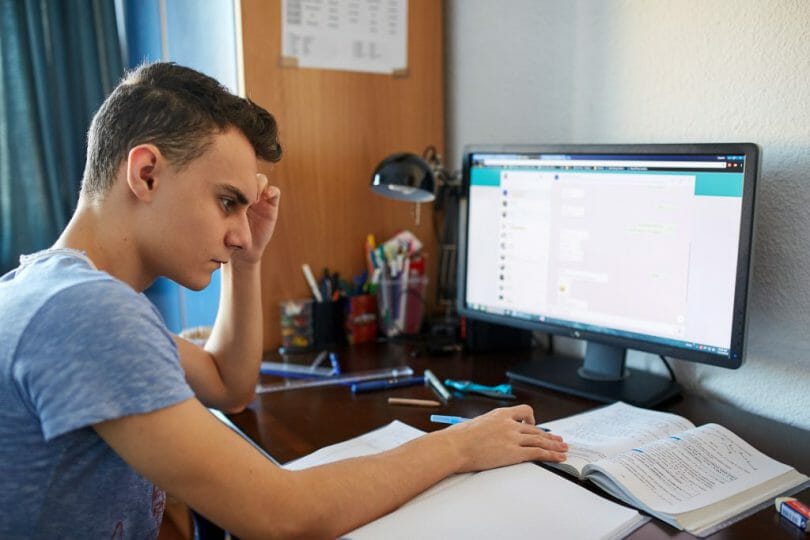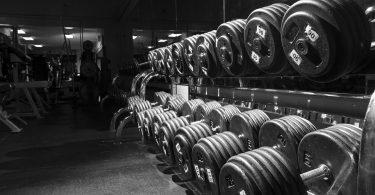By now, you likely have a great understanding for how to use the step pages to move your recruiting process along. The first two steps have been about understanding all the college baseball opportunities available to you and...
Step 3: Create a Personal Recruiting Plan
Do This
✅Get honest and objective feedback on your abilities and make a list of areas of your game that need improvement to reach the standard of play for the level of college baseball you wish to play
✅Set daily standards for your behavior that will allow you to grow as a student and athlete (no video games until homework is done, 100% effort at all times in school and on the field, quality over quantity in the batting cage, etc.)
✅Match your daily standards with long-term goals that you can use as a measuring stick for growth (By junior year, increase 5-rep front squat by 75 lbs., by the start of next school year, improve my time from home to 1st by .2 seconds, etc.)
✅Use more honest and objective feedback to help inform changes to your process of reaching your goals
✅Think about what you want in a college experience and continue to mold this vision as you get closer to applying to schools (Use this helpful PDF worksheet or do it online with Big Future )
✅Create a preliminary list of schools of interest according to what you are looking for in a college experience and continue to revise the list as you learn more about individual schools and programs
✅Research schools on your list extensively and find out everything you can about each school and baseball program of interest (use this PDF of questionsto help)
✅Take informal visits to college campuses of interest and start to get a better feel for the type of schools and environments that you enjoy
✅Begin to formulate a comprehensive plan for how you will get recruited with an emphasis on development and academics
Learn About This
✅Continue to learn about how you will develop into a recruitable player
✅Learn about the importance of setting goals
✅Learn about the importance of honest, objective feedback and how it can help you create a better development plan
✅Learn about the importance of timing throughout the recruiting process and how you can take advantage of certain times in the recruiting calendar
Read This
Step 3: What to Read and Research
The ‘Read This’ section of Step 3 aims to give you the information and guidance you will need to start developing your own, personalized plan to get recruited. Every recruit is different and every path to college...
Patience Pays Off
Timing Is Everything: Understanding the Recruiting Timeline
The Importance of Having the Right Mindset
The Importance of a Diverse Recruiting Plan
Networking: Your Secret Weapon in the Recruiting Process (2019)
Should You Use an Online Recruiting Profile? (2018)
College Coaches Survey: Academics Are Very Important
Proactive Recruits Don’t Get Missed
Preparing to Play College Baseball: Skill Development
Preparing to Play College Baseball: Think The Game
Preparing to Play College Baseball: Character
Preparing to Play College Baseball: Attitude + Effort
Parents: Know Your Role in the Recruiting Process
Academics
This step is all about planning out your recruiting process to the best of your ability. Any successful recruiting plan will have to include a solid academic plan. Luckily KPB is here to help! Your academic plan should prepare you to play at the highest level. The last thing you want is interest from a great school, only to find out you didn't meet the NCAA academic eligibility requirements for that level. What you need to do now (not later), is map out the classes you will take in high school to meet the NCAA D1 (most strict) core course requirements. You will also want to plan for when you will study and take the SAT or ACT, allowing plenty of time to re-study and re-take the exam if you are not happy with your first score. College coaches like recruits to have taken one of the tests before the end of their junior year of high school. If this sounds confusing, don't worry! We've put together a worksheet to help you plan out your test dates and core courses. Just click and download the worksheet right here .
In addition to using the worksheet, make sure you are checking for updates to the NCAA rules and eligibility requirements. They change from time to time and you don't want to miss anything important. You can find the most up-to-date academic requirements here.
Lastly, you'll want to make sure that you are thinking about what you want to study while in college. Having an idea of your academic interests can help you find colleges with majors you may enjoy during the college search process.
Player Development
If you remember one thing about the recruiting process, let it be this: development is king. Development is not only what will get you recruited, it's also what will save you money throughout the recruiting process and succeed once you get to college. The price of development is sacrifice, blood, sweat, and tears. It takes a lot of will and hard work to get better. The information is out there, it's just a question of whether you are willing to put in the time and effort to learn and continue to improve. No matter what year of high school you are in now, prioritize and work towards these developmental goals:
✅ Build functional strength, speed, and size
This means that you are building strength that translates to on-field success and will help you become a better and more efficient baseball player.
✅ Improve your baseball skills and fundamentals
This means that you are fine tuning all the on-field skills that are expected from a player at your position at the college level.
✅ Improve your athleticism
This means that you are playing other sports and/or learning how to move your body more efficiently. College coaches value athleticism as much as any baseball specific skill.
✅ Improve your mental game
The mental game at the college level runs circles around what you are experiencing in high school. The competition is better, smarter, and more informed. You will be forced to play the game at a much faster pace and have improved decision-making speed and skills. Improving the mental game means learning how to stay focused in the present moment, focusing on what you can control and your reactions to what you can't.
Part of developing the skills above is having the patience and trust that what you are doing will pay off. You need to exercise patience because improvement won't come overnight. It will come by forming consistent patterns and behaviors and putting the work in day-after-day. Resist the temptation to sacrifice development for exposure opportunities early in high school. By waiting until you have the skills and strength that college coaches look for before contacting coaches and seeking exposure, you increase your chances of getting recruited. Now is the perfect time to make sure you are doing the things that will help you achieve the goals above. Your development plan should include:
✅ A plan for getting honest and objective feedback on your abilities to inform where you focus your efforts and make adjustments to your training and development plan
✅ A quality weight lifting and strength program
✅ A plan to address your weaknesses realized from self-evaluation and outside feedback
✅ A plan to improve on your strengths
✅ A plan to continue learning and striving for a better way to do things
✅ A way for you to measure and track your progress (Focus on the process only works if it's the right process and you should be seeing growth and improvement over time)
If you can develop a plan that does these things, you are off to a great start!




